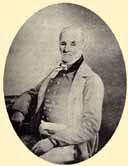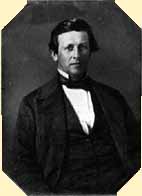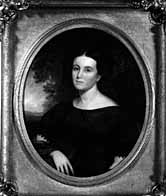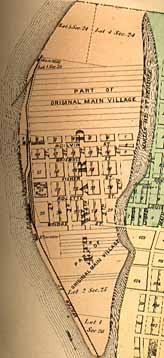

 |
 |
A Canoe Voyage up the Minnay Sotorby George William Featherstonhaugh 1835 |
 |
I had become so accustomed to the independent feeling of a traveller in Indian lands, carrying my own comforts and my own little world along with me, and sure of my own rude, but clean, bed at night, that I felt shy at communicating with this post at Prairie du Chien, where I was more certain to meet with some of the restraints of society, than to find greater pleasures than I knew how to procure for myself. The scene, however, before me was a pleasing one, and some of the officers of the garrison coming down to the beach to learn who we were, I landed, and was conducted by them to their quarters in an extensive quadrangle in the fort. Here I had a commodious room assigned to me; and almost immediately afterwards, that most respectable and gentlemanly officer, Colonel Taylor,* the commandant, called upon me and offered all the services in his power. It is impossible to express by words how much a traveller in these rude countries is touched by such attentions; and certainly it is due to the officers of the American army to say, that upon all similar occasions I have found them as hearty and as hospitable as men know how to be.
Having seen my Canadians encamped in a proper place, had my effects brought to the garrison, cautioned them against getting drunk, made my toilette, and supped with the officers at the mess, I paid a visit to the commanding officer, from whose quarters we adjourned to a small theatre, which had been fitted up to amuse the men and keep them from dissipation, where some of the histrionically disposed soldiers were that evening to represent the comedy of "The Poor Gentleman." Miss Emily was personated in a most astounding manner; such a monster in petticoats, and stick in feeling, probably never was exhibited before. The only three decent performers were an Englishman, an Irishman, and a Scotsman; the rest seemed to have neither sense nor feeling. It was a crowded house, and, from the applauses that were occasionally given, and the criticisms that I heard, I perceived at once the importance of turning the attention of common soldiers to intellectual exhibitions of this kind, which, besides affording much gratification, cannot fail to divert many of them from sinking into low debauchery. At this post I was fortunate enough to find letters from my friends.
 Hercules Dousman |
September 1.--After breakfast, whilst I was occupied in answering my letters, Colonel T. called and sat an hour with me, conversing about the state of this part of the country, and the condition of the Indians. Being a Virginian of independent fortune, who chooses to remain in the army only because he is attached to the profession, his manners, like those of many of the superior officers of the American army, who are men of education, inspire great respect. Having accompanied the Colonel to his own house, I proceeded to the old French village to call upon Mr. Douceman, one of the most respectable inhabitants there, who is one of the managers of the fur trading company; and having communicated to him my intention of proceeding to the sources of that important tributary of the Mississippi, the St. Peter's, he was kind enough to promise me introductions to his agents in the upper country. This important step being happily concluded upon, I determined to take a rapid look at the rocks in the neighbourhood, and lose no time in preparing for my departure. |
 Jane Roulette Dousman |
|
Directing fresh supplies of provisions to be prepared for our voyage up the Mississippi, I walked across the prairie to the limestone quarries at the bluffs east of the garrison. ... From this bluff I had a fine view of the Mississippi, upon which, as the season was passing rapidly away, I was greatly desirous of being once more. The whole valley, from the rocks where I stood to those on the other side, appeared to be about two miles and a half wide; the little prairie being near two miles of the whole, and the Mississippi contributing the rest. This, then, is the breadth of the ancient flood that rolled through these regions. Having dined in a very agreeable manner with Colonel and Mrs. T., I walked in the afternoon to the French village, and amused myself with talking to the habitans, who seem to lead the same sort of idle and adventurous life that all the Canadians do,--perfectly happy when they have enough to eat, and superlatively so when they are drinking and dancing. I had made the acquaintance at Navarino of a Mons. Rolette, an "ancien habitant" of this place, who had been long engaged in the fur trade, and he arrived here this day. I found him a jolly, intelligent person, and a bon vivant. He gave me a good deal of information of the upper country, and insisted upon my taking up my quarters with him on my return. The hard task now remained before me of collecting my men for our departure in the morning. I heard but indifferent accounts of them: they were acting more like wild men than tame ones, most of them being in a continual state of intoxication. Even Beau Pré had not been able to resist the fascinating temptations of the place; but he was not as bad as the rest; and upon my reminding him of his promise to be prudent, replied, "Monsieur, ce n'est rien du tout; vous trouverez votre monde ramassé demain à l'heure convenu." |
 Old Prarie du Chein |
* Afterwards appointed to the command of the American troops destined to invade the neighbouring Republic of Mexico.